Book Review: “Finding Freedom”
Cook Behind a World Renowned Restaurant Publishes Memoir
Erin French released her memoir “Finding Freedom” on Apr. 6 that tells the story of creating community through the love of food in the town of her childhood, Freedom, Maine, that carries bitter memories. Her restaurant, The Lost Kitchen, remains one of the hardest restaurants to book reservations for in the nation.
October 15, 2021
She is a cook, not a chef. Erin French is not the typical author, but her story isn’t either. ‘Finding Freedom: A Cook’s Story; Remaking a Life from Scratch’ was released earlier this year on Apr. 6 and is a New York Times bestseller.
I first came across this book after watching a “60 Minutes” segment that featured the author and owner of the Lost Kitchen, the restaurant owned by French. I have to admit I was skeptical of the read, as I don’t have much connection to anything related to the book: I live as far as one could get from Maine, my family is not in the restaurant business, never shucked my own oysters, nor had access to abundant seafood. Despite this, ‘Finding Freedom’ is one of my favorite books of the year.
Erin French starts the memoir with experiences in her childhood growing up in the sleepy town of Freedom, Maine. There is continual tension between Erin and her father, an alcoholic who owns the local town diner, believed to originate from his desire wanting boys for children to carry on his family name. He seems indifferent to his daughters as they try their best to avoid his lashing, erratic behavior. The traits exhibited by her father create a unique mirrored experience with her first husband that Erin in part seems to acknowledge for the first time through writing this book as an outlet. The book made me feel a connection to the author because the story is such a vulnerable topic and she shows the true strength of her character tested to relive her darkest moments.
While working in her dad’s diner trying to earn some money and gain his respect, she develops a love for working with food, serving people, and trying to fuse new ingredients into the classic American fare. Throughout the story, food brings her family together when nothing else will.
The quick awakening into her adult life is propelled by an unexpected event, forcing her to drop out of college. She faces more problems after moving home then to the nearby coastal town of Belfast that puts her near death. The climatic recount built up my nerves so that I could not put the book down; it has been quite some time since I last felt that way from a book. The low spirits in this part of the book are counteracted with irony perfect in comedic undertones that allowed me to smile within the turmoil.
The author puts as much passion into writing her story as she does with every meal prepared at the Lost Kitchen. The read is reminiscent of ‘The Glass Castle’ by Jeannette Walls – a story about a dysfunctional family – due to the same vivid, unexpected imagery that follows the storyline. I think French solidifies herself as unique, great writer in her own right through her ability to create complex food profiles in writing.
The often humorous and clever chapter titles, like ‘Leaves of Three,’ set the stage for food that feels so close you could eat it. She describes the staple oysters served with “an apple-and-shallot mignonette—and hard-boiled quail eggs” and and the final dishes of “rich chocolate tart or a luscious lemony semifreddo with hazelnut brittle.” In my view, the detailed expression of ingredients are an important aspect of illustrating her connection with food and does not distract from the chronological story because it is the outlet in which Erin makes connections with family, friends or near strangers.
I would recommend this novel, even if you’re not a skilled cook like me. The story of overcoming hardship, finding community, love and sharing your passion (that being food in French’s case) is something we can all relate to and appreciate. This is a classic American story for all, creating a little magic out of the ordinary: food. Readers will be impacted by the candid story through heartache and triumph. By the end of the book I was completely mesmerized by Erin French, the resiliency and the special space she created in Freedom.
The Lost Kitchen is still located in the building of the old town mill. The restaurant found a creative approach to meet the alarming demand to dine in, using postcard raffles for the reservation process, that I admire in the digital age. “Finding Freedom” is available on Amazon and at Barnes and Noble for $28.



![Jumping off the ground, senior linebacker Bennett Patton snatches the ball out of the air for an interception at Thursday’s game against Chaparral. Patton had two interceptions in the 56-14 victory, tying the school record for interceptions in a game. “I was just playing the game,” Patton said. “[I’m] going to go into next week, forget about it and stay humble.” Photo by Harper Chapman](https://cphswolfpack.com/wp-content/uploads/2025/09/bennett-interception.jpg)
![The fire department came to the school after students were evacuated when smoke started coming from the ceiling of a classroom. All students and staff are safe. “All of my friends left their stuff too, so we couldn’t contact our parents, and it was stressful,” senior Brynn Fowler said. “It was scary because I didn’t know [what was going on], and I couldn’t find anyone because it was a big crowd.” Photo by Anthony Garcia](https://cphswolfpack.com/wp-content/uploads/2025/09/firetruck.jpg)


![Sitting with her friend senior Sohpia Struve at last year’s Austin City Limits Festival, senior Ava Zuniga poses for a picture under a pavilion. They are frequent attendees at ACL, an annual music festival at Zilker Park. “I would recommend seeing a bunch of people,” Zuniga said. “This past year, we camped out for Chappell [Roan] for a really long time. I think the whole point of ACL, [which] is a lot of fun, is that you can go see so many different people, even if you don’t know them. So by camping by one person, it really limits yourself from being able to go see a bunch of people.” Photo courtesy of Ava Zuniga](https://cphswolfpack.com/wp-content/uploads/2025/10/EE9E9484-FE6F-4AA0-B5F5-0C177AB32841-1200x857.jpeg)
![Broadcast, yearbook and newspaper combined for 66 Interscholastic League Press Conference awards this year. Yearbook won 43, newspaper won 14 and broadcast took home nine. “I think [the ILPC awards] are a great way to give the kids some acknowledgement for all of their hard work,” newspaper and yearbook adviser Paige Hert said. “They typically spend the year covering everyone else’s big moments, so it’s really cool for them to be celebrated so many times and in so many different ways.”](https://cphswolfpack.com/wp-content/uploads/2025/05/edited-ILPC.jpg)




![Looking down at his racket, junior Hasun Nguyen hits the green tennis ball. Hasun has played tennis since he was 9 years old, and he is on the varsity team. "I feel like it’s not really appreciated in America as much, but [tennis] is a really competitive and mentally challenging sport,” Nguyen said. “I’m really level-headed and can keep my cool during a match, and that helps me play a bit better under pressure.” Photo by Kyra Cox](https://cphswolfpack.com/wp-content/uploads/2025/09/hasun.jpg)


![Bringing her arm over her head and taking a quick breath, junior Lauren Lucas swims the final laps of the 500 freestyle at the regionals swimming competition on date. Lucas broke the school’s 18-year-old record for the 500 freestyle at regionals and again at state with a time of 4:58.63. “I’d had my eye on that 500 record since my freshman year, so I was really excited to see if I could get it at regionals or districts,” Lucas said. “ State is always a really fun experience and medaling for the first time was really great. It was a very very tight race, [so] I was a bit surprised [that I medaled]. [There were] a lot of fast girls at the meet in general, [and] it was like a dogfight back and forth, back and forth.” Photo by Kaydence Wilkinson](https://cphswolfpack.com/wp-content/uploads/2025/03/Kaydence-2.7-23-edit-2.jpg)
![As the support team sits and poses for a photo in the cafeteria with the counseling team they eagerly wait to start their day. "We [all] seem to be a team, I get up every day and there's days where I don't want to go to work today, but I'm thankful that I have a job and I'm blessed to have what I have," Christopherson said. Photo Courtesy of Julie Weltens.](https://cphswolfpack.com/wp-content/uploads/2025/01/AF9E8470-10D7-4C91-BF28-EC8F86BAB66C-1200x852.jpeg)
![Officer Stephanie Cash is in her second year as an SRO at CPHS. “Seeing [students] grow over the years has been kind of cool,” Officer Cash said. “Freshmen that [are] all over the place and then in the next couple of years get a little more squared away and go to class and do work and start thinking about the future. Being a part of a student's growth is the best way to measure my success as an SRO.” Photo Courtesy of Cedar Park Police Department's PIO, Alicia Gallagher.](https://cphswolfpack.com/wp-content/uploads/2024/12/CPHS-SRO-900x1200.jpg)
![As he sprints with the ball, senior running back Trae Hill breaks a tackle during Friday’s 35-14 loss against the Vandegrift Vipers. Hill ran for 135 yards and two touchdowns during the game. “[Scoring] was electric,” Hill said. “It always feels good to score, but the O-line did everything.”](https://cphswolfpack.com/wp-content/uploads/2025/09/IMG_0795allie.varfb_-1200x799.jpg)














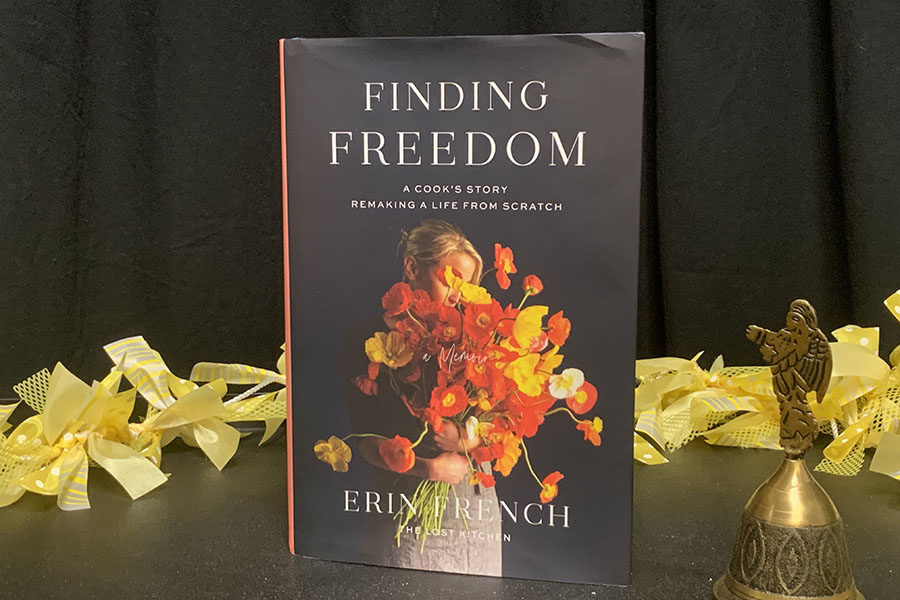



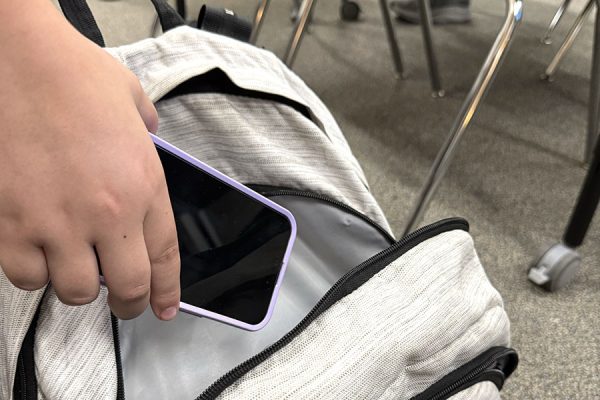

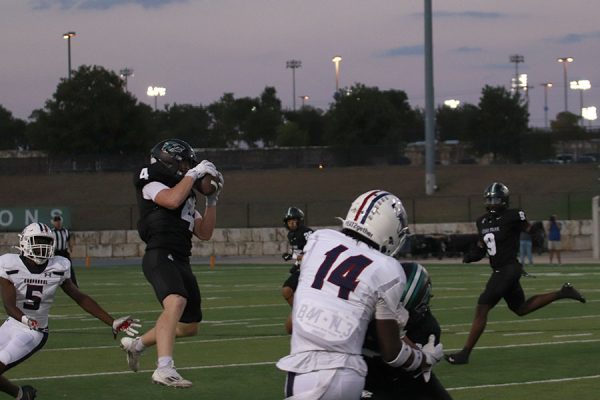

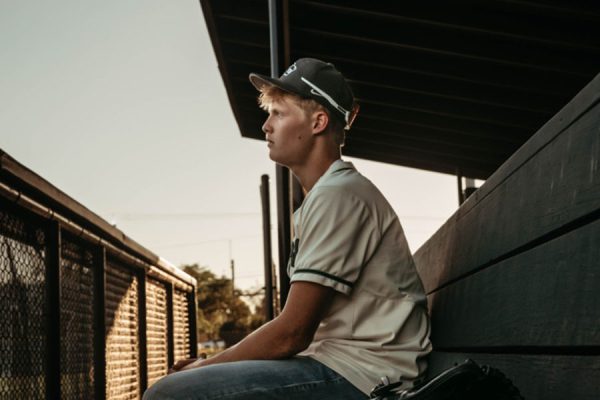

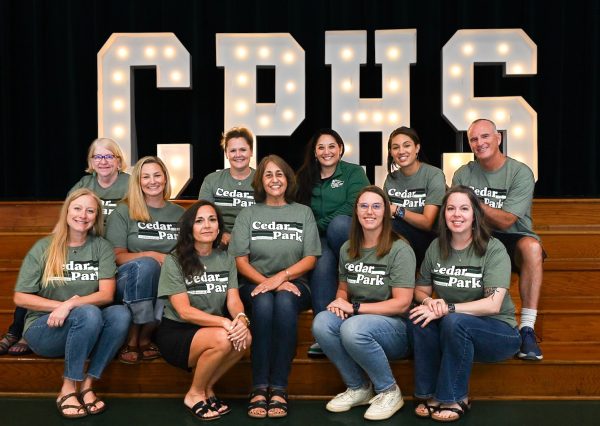

![The fire department came to the school after students were evacuated when smoke started coming from the ceiling of a classroom. All students and staff are safe. “All of my friends left their stuff too, so we couldn’t contact our parents, and it was stressful,” senior Brynn Fowler said. “It was scary because I didn’t know [what was going on], and I couldn’t find anyone because it was a big crowd.” Photo by Anthony Garcia](https://cphswolfpack.com/wp-content/uploads/2025/09/firetruck-300x200.jpg)

![Finishing her night out after attending a local concert, senior Grace Sauers smiles at the camera. She recently started a business, PrettySick, that takes photos as well as sells merch at local concert venues. Next year, she will attend Columbia Chicago College majoring in Graphic Design. “There's such a good communal scene because there [are] great venues in Austin,” Sauers said. “I'm gonna miss it in Austin, but I do know Chicago is good, it's not like I'm going to the middle of nowhere. I just have to find my footing again.” Photo Courtesy of Grace Sauers.](https://cphswolfpack.com/wp-content/uploads/2025/04/Grace-300x225.png)



Susan M. Burns • Jan 8, 2024 at 10:34 pm
Thank you for your insight into the story and also not revealing some of the surprise elements.
You are correct in the rich flavor of her word choice when describing food and her clever title selection to make you think as you read the chapter to find out the meaning hidden within.
Well Done!